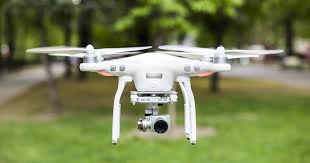Legal Aspects of Using Drones for Civilian Purposes
Introduction
The use of drones for civilian purposes is becoming increasingly popular in a variety of areas, including agriculture, delivery of goods, video recording, infrastructure monitoring, and more. However, as the use of drones expands, new legal and
Challenges. In this article, we will consider the main legal aspects related to the use of drones for civilian purposes.
Regulating the Use of Drones
International Standards
- International Civil Aviation Organization (ICAO): ICAO develops guidelines and standards for aviation safety, including drones. It is important to harmonize international standards to ensure flight safety.
- European Aviation Safety Agency (EASA): In the European Union, EASA sets the regulatory standards for drones, including registration, certification, and safety requirements.
National Legislation
- Registration of Drones: Many countries require registration of drones of a certain weight or size. For example, in the United States, registration is required for drones weighing more than 250 grams.
- Operator licensing: In some countries, drone operators are required to obtain a license or certificate to use drones commercially.
- Flight Restrictions: There are restrictions on flying in certain areas, such as airports, military installations, national parks, and populated areas. There may also be restrictions on flight altitude and distance from the operator. You may be interested in the following articles: legal advice, legal advice, analysis of documents, legal analysis of the situation, written advice, verification of documents by a lawyer, lawyers documents, online legal assistance, online lawyer, legal opinion, legal opinion of a lawyer, lawyer online.
Security and Privacy
Security.
- Incident Prevention: It is important to follow safety rules to prevent drones from colliding with other aircraft, buildings, or people.
- Technical Requirements: Drones must meet technical standards, including an automatic return system, flight altitude limits, and obstacle avoidance.
Privacy
- Protection of Personal Data: Using drones with cameras may violate people's privacy. It is important to comply with personal data protection laws and obtain consent for filming in private areas.
- Right to Privacy: It is unacceptable to use drones for illegal surveillance or collection of information about the private life of citizens.
Liability and Insurance
Responsibility
- Civil Liability: Drone operators can be held liable for damage caused to third parties or property. This includes damage to buildings, cars, or personal injury.
- Criminal Liability: In case of violation of the law, operators may be held criminally liable, for example, for violation of flight safety rules or invasion of privacy.
Insurance
- Liability insurance: It is recommended to have liability insurance to cover possible damages caused to third parties.
- Drone insurance: May include coverage for risks associated with damage or loss of the drone.

































